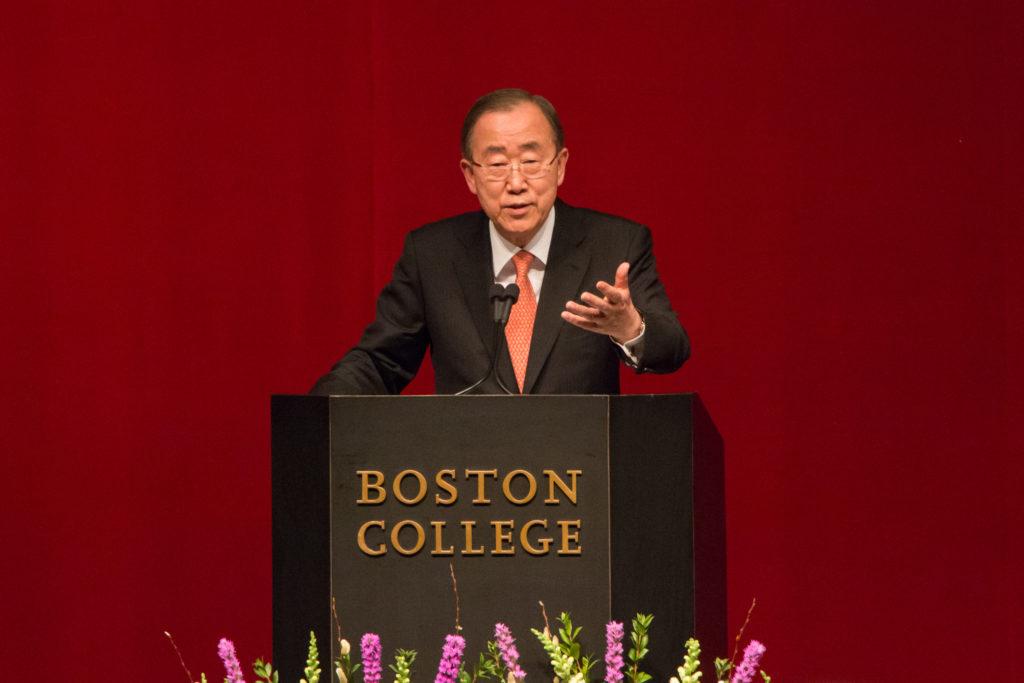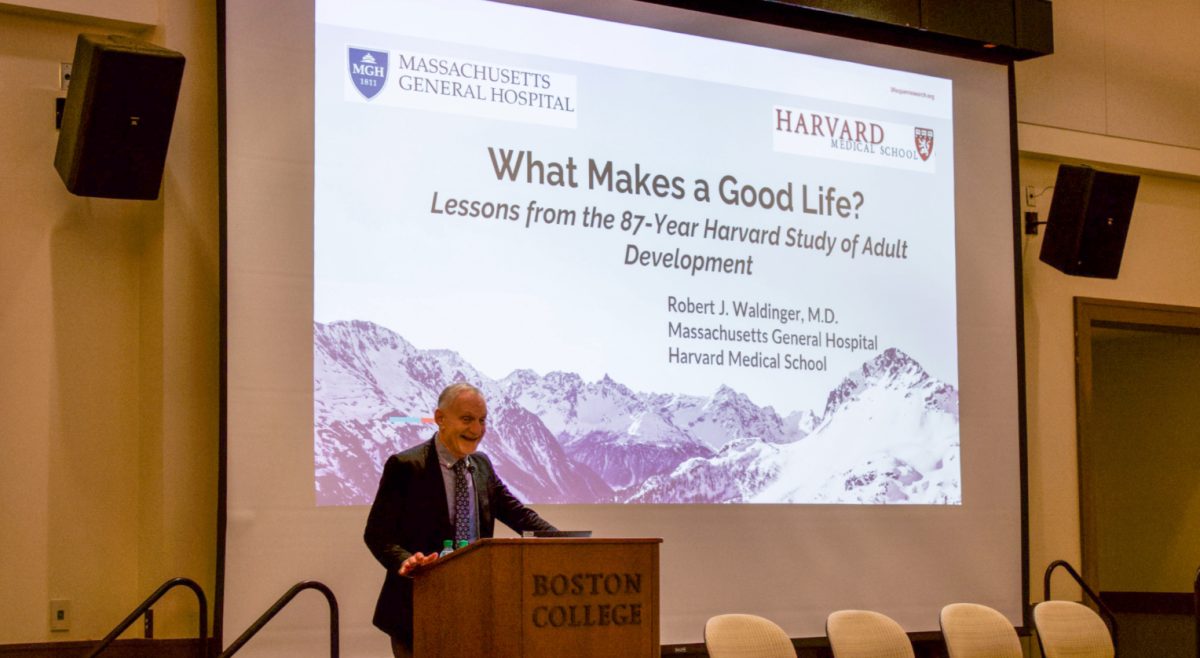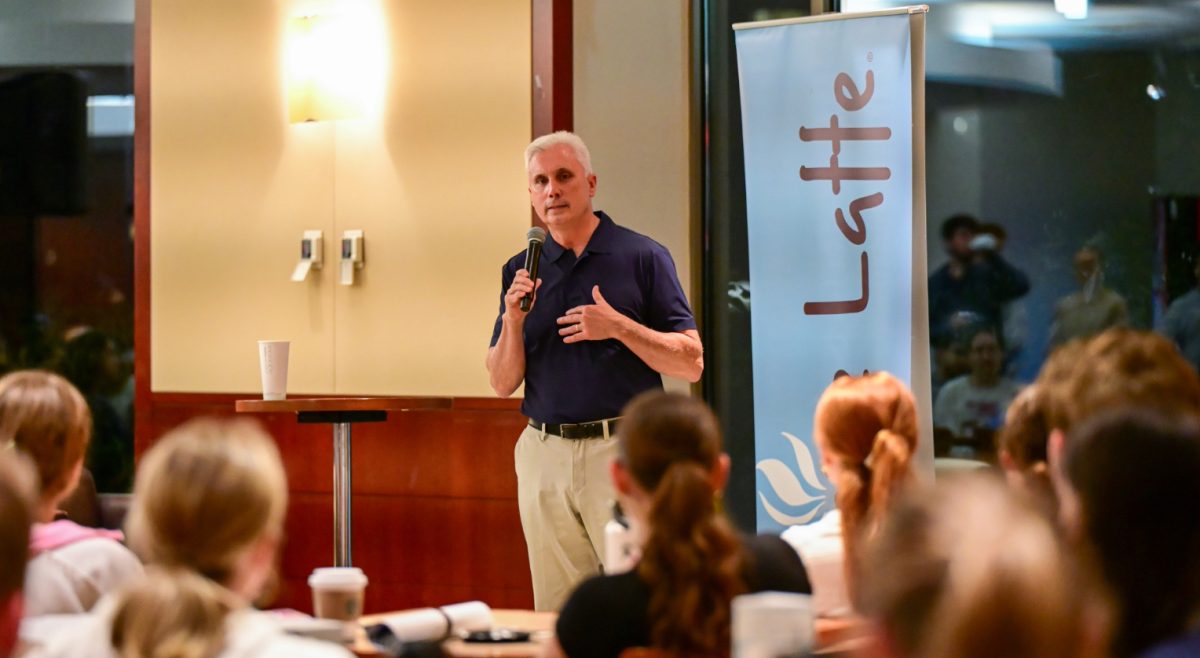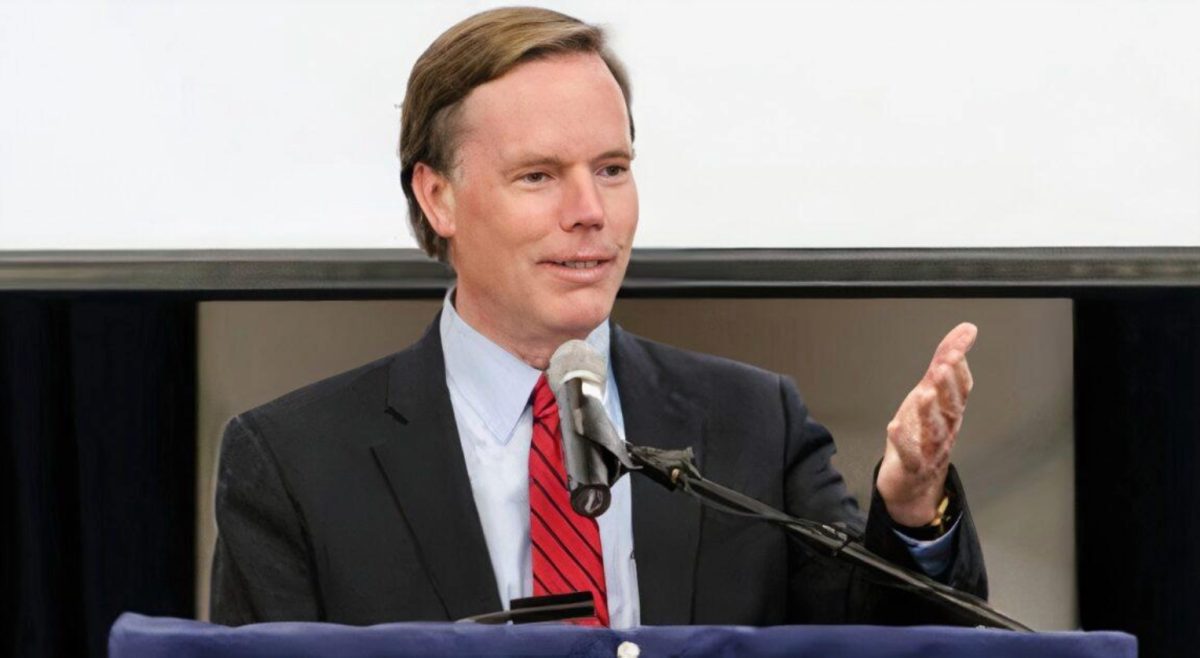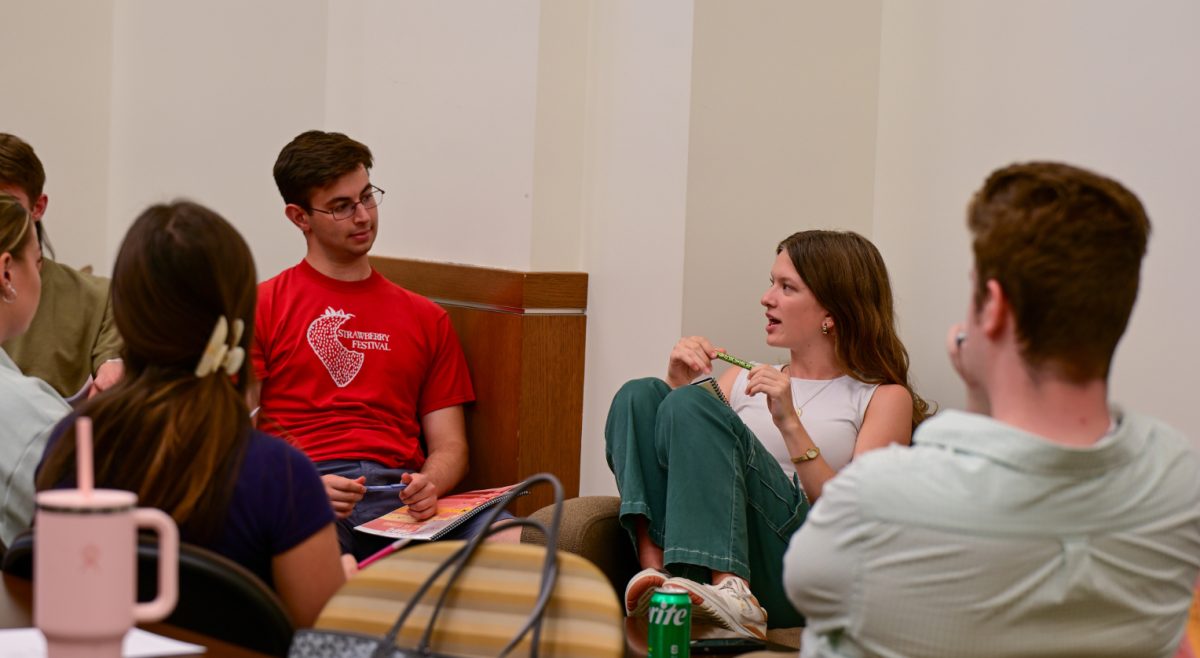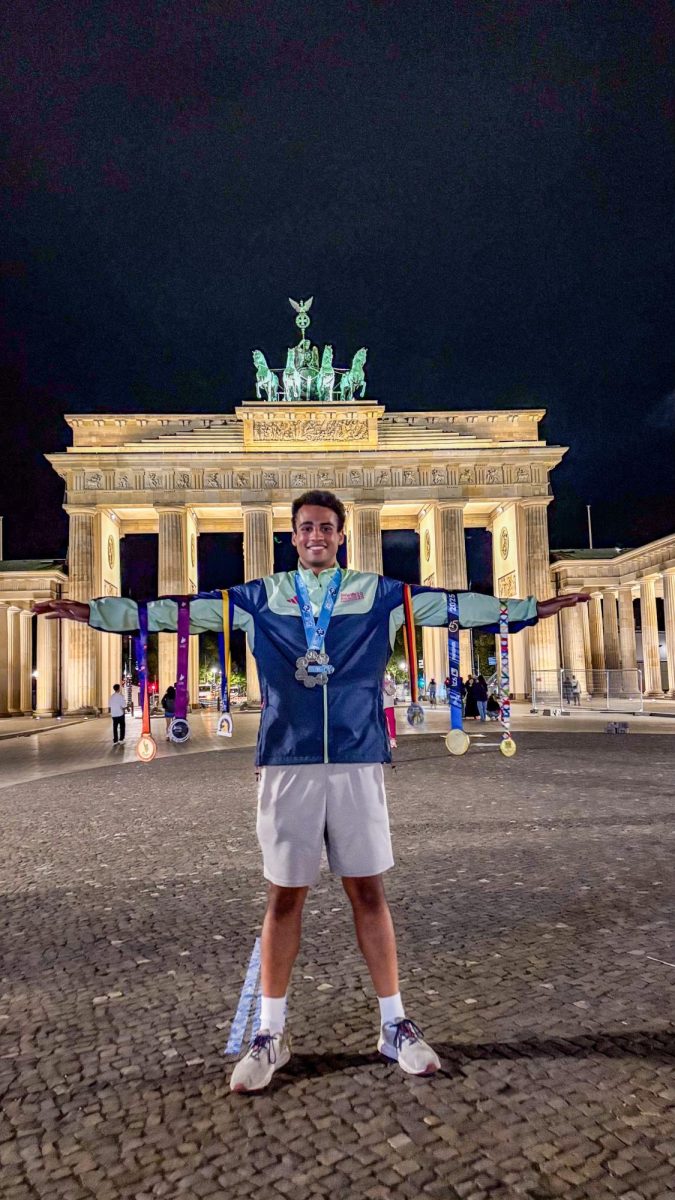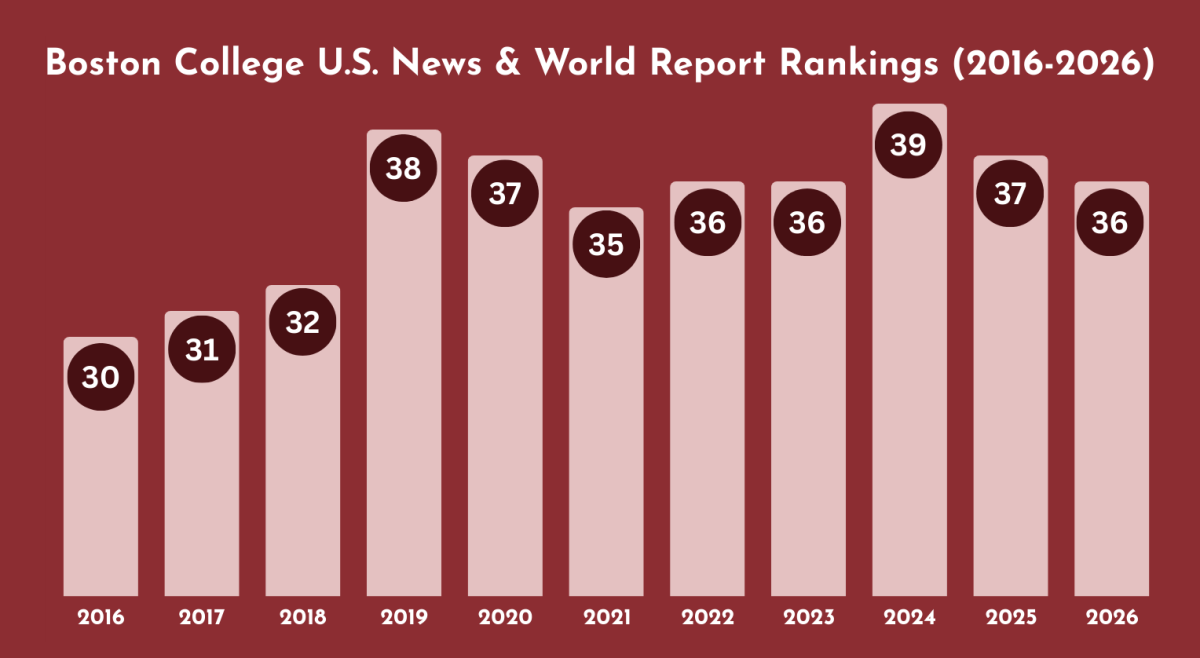To his supporters, he was a calm, steady hand at the helm of one of the world’s most powerful intergovernmental organizations. He was arguably one of the most influential people on the planet, playing a direct role in some of the world’s most pressing issues in recent history: the conflict in Syria, South Sudan and Yemen, the Haiti cholera epidemic, and bettering standards of living for impoverished people around the world.
And for the Boston College community, his leadership and diplomacy serves as an inspiration for citizenship that extends beyond the borders of one’s country.
Ban Ki-moon, the Honorable Former Secretary General of the United Nations, spoke in Robsham Theater Tuesday night. He offered a vigorous defense of international institutions in an age of rising nationalism, and impressed upon students his belief in the importance of fostering the values of global citizenship.
Ban began his remarks by exploring the perils and promise of technology.
“Nowadays, we find ourselves in the midst of a global era of change,” he said. “At the same time, that is why there is a general sense of uncertainty and insecurity fostered by the very technological progress we have been successful in achieving. The question is ‘How we can use it to advance opportunities for humankind?’”
Amidst this uncertainty, Ban is hopeful that mankind can successfully meet its most pressing challenges.
“I am confident that human resources and capacity will be able to work for the betterment of our common humanity,” he said. “At the same time I believe that much of this capacity is ground in partnership to achieve our development goals.
Ban stressed the global nature of the challenges facing the international community, ranging from terrorism to climate change. These issues must be solved by partnership, for they are too complex to be handled by a single state, he explained.
“The United States is often known as the richest and most powerful country, and most respected for its democratic principles and values,” Ban said. “But however resourceful, however powerful one country like the United States may be, there is no country and no individual in this world who can handle and solve all these challenges and global problems we are now facing.”
Ban connected this to his advocacy for increased dialogue and partnership among the international community, asking for professors and students to bear heavier responsibilities as global citizens.
“It is not important to just teach or deliver some knowledge to the students,” he said. “It is much more important that these students become global leaders and global citizens with global visions.”
Ban spoke about some of the organizations dedicated to this goal,and addressed the critics of the UN who doubt the organization’s effectiveness and relevance in handling issues of global importance. He maintained that the organization’s tireless pursuit of human rights, sustainable development, and peace and security was made possible through partnership.
“Diplomacy and cooperation through international organizations are the better way of solving world problems,” he said.
Despite the progress in reducing the number of people living in extreme poverty or dying from preventable diseases, Ban acknowledged the enormous challenges that remain, including unprecedented refugee flows.
“Often people say you are going to be the leaders of tomorrow,” he said. “But many young people… have already taken leadership today. So you should be prepared to lead this world today, at the latest tomorrow. To take charge of this global leadership.”
According to Ban, the UN’s central challenge is to have a vision for all people and countries at various stages in development that is in harmony promoting the health of the planet. Under his leadership, the UN laid out 17 Sustainable Development Goals. These objectives articulate the progress the UN hopes to make by 2030.
“Some people have skepticism… whether we will be able to meet the targets,” he said. “We can do it, if we pursue a strong partnership among governments, international organizations, and civil society… it is most important that we work together.”
Ban cited BC’s actionsas a positive example.
“The work that Boston College pursues in corporate citizenship, global engagement, and refugee advocacy are shining examples of the power of partnership in action.”
He also applauded the University for its mission-driven approach to education.
“I commend the leadership of Boston College for harnessing its academic resources and guiding Jesuit liberal arts traditions into a strong commitment to global engagement and service,” he said. “Such motives are particularly timely at this particular juncture for our world and collective future.”
Ban then transitioned to a discussion of climate change. As UN Secretary General, he oversaw the Paris Climate Summit, calling it one of his proudest achievements. He continued to call for action, saying that the international community has to address the issue while there is still time. He called the deal “major progress,” and criticized the United State’s decision to pull out of it.
“I must express my deepest concerns about what the U.S. administration is doing,” he said. “If the U.S. administration continues in this way, it will be standing on the wrong side of history.”
He praised the states and cities that have decided to implement the Paris Deal, saying he is encouraged by what he sees from the grassroots of these people. He also tied in climate change to his advocacy of global citizenship.
“Young students, you have to speak up,” he said. “This is the world in which you have to live… you have to speak to your senators and representatives and make sure that this country pursues sustainability.”
Ban recalled being a college freshman— coming from poor, underdeveloped Korea— meeting President John F. Kennedy at the White House in 1962. He remembers Kennedy telling them to look beyond the U.S., and beyond the Cold War. Most of all, Ban recalls him expressing his belief in them.
“He was talking about global vision, global citizenship, and I was very much inspired. Almost 60 years later, I am now talking about the same things, to young students.
“Despite the challenges we currently face, if we join together in strong partnerships, and move forward as global citizens, we can achieve our goals and create a brighter future.”
Featured Image by Celine Lim / Heights Staff

